To Be Continued Save the World

It's no secret that the ocean needs our help. Last year a fire caused by a rupture of an undersea gas pipeline made part of the Gulf of Mexico look as though it were a cauldron of flame. And while the photos and videos were shocking, the reality is that our oceans are facing crises all the time, many just aren't as visible. Greta Thunberg, a young climate activist, famously said "our house is on fire", and in this metaphor, the ocean is part of the house too, even if the blaze in the Gulf has been quenched.
The ocean being set ablaze wasn't an isolated incident. The impacts of climate catastrophe are all around us. Some are so clearly linked to human activity that there's no room for deniability. Take, for example, the Pacific trash vortex, a.k.a the Great Pacific garbage patch: this ever-growing, floating dump swirls in our waters, covering more than 600,000 square miles. Other climate crisis-linked events, like snowstorms in Texas and intense heatwaves in the Pacific Northwest, can be written off as bizarre weather, especially if you're hearing about it on the news rather than living through it. But these climate events are happening with far greater frequency, and they repeatedly render local communities helpless and underscore how infrastructure simply isn't built to handle these unheard of extremes.
Of course, safeguarding our oceans (and, subsequently, the food chain) is much more than banning plastic straws or styrofoam cups. In fact, the emphasis on individual action to negate the impacts of climate change was a marketing strategy of oil companies. Many argue that corporations are merely displacing the blame by creating a sense of guilt in the minds of consumers, and we stand by that argument. The best thing that you can do for the oceans, is to join a movement fighting for climate justice. Only through building collective power can we force states and corporations to take responsibility for the devastation they've caused the planet.
Still, however much we understand that reducing, re-using, and recycling is not enough, small actions can help us manage climate anxiety. With this in mind, we've rounded up eight simple actions we can all take to save our oceans, and, in turn, our planet. Just remember: the fight for climate justice, and accountability, doesn't end here.
1. Reduce Food Waste — and Compost
According to the U.S. Food & Drug Administration (FDA), 40% of the food supply in the United States becomes food waste. Unfortunately, many people are unaware of just how much food waste contributes to climate change. The truth is, if it's not disposed of properly, extra food rots, producing methane.
Although methane is non-toxic to humans, it's very flammable. As it is released into the atmosphere, methane directly results in, or augments, issues like rising ocean temperatures. Moreover, this contributes to the melting of icebergs and coral bleaching, among other issues. But it's not all about atmospheric methane; this food waste byproduct also leaches into the soil and contaminates the ocean floor.
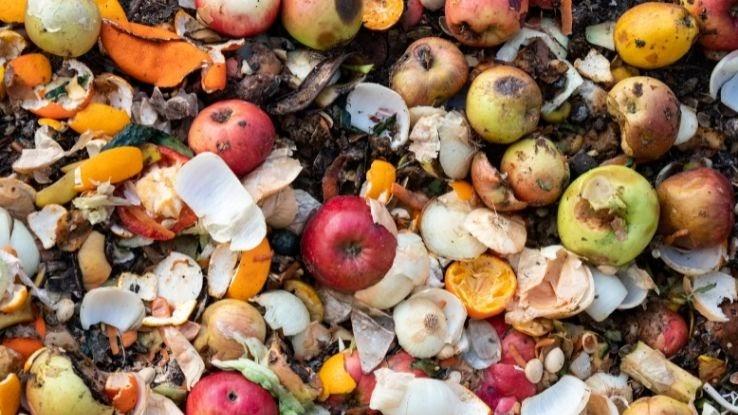
Composting food waste is an easy way to reduce methane. Would-be food waste is able to compost in the presence of oxygen — as opposed to being trapped in a landfill. Not only does compost mitigate methane production, it can also help you fertilize your personal garden. In addition to composting, try reducing your food waste by shopping locally, sticking to a prewritten grocery list, buying unwrapped (or "naked" products), and flexing your creative chef skills when it comes to reusing food scraps and leftovers.
The World Wildlife Fund (WWF), reports that almost one-third of freshwater fish are threatened with extinction, which is a direct result of human activity. Not only do we drop over 400 million tons of pollution into the water every single year, but we also catch more fish than needed for human consumption. Moreover, the impacts of climate change have already shrunk fish populations by roughly 35%.
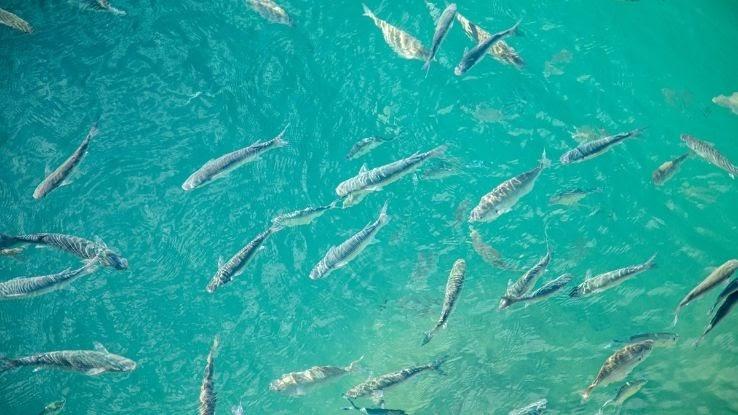
Humans also contribute to rapidly decreasing fish populations through overfishing. Scooping up net-fulls of fish from the bottom of the ocean disturbs entire ecosystems, and, since it takes fish years to mature, overfishing actually delays species' ability to repopulate the ocean naturally. Want to save the fish and help restore the ocean's ecosystem? Consume less fish — and, when you do cook it, buy responsibly sourced catches from certified sellers.
3. Commit to a Plastic-Free Lifestyle
National Geographic reports that a staggering 8 million tons of plastic waste are disposed of in the ocean every single year. Just like food waste, plastic waste presents a huge issue for the ocean's ecosystem(s). And, of course, it also poses an immediate threat to marine wildlife, which consumes — or gets trapped in — plastics and, often, die off. To make matters worse, half of all plastic has only been manufactured in the past 15 years, which means it isn't just an issue of inevitable accumulation. Sure, plastics are convenient and cheaper, but the ramifications can be devastating.

So, in order to help save the ocean, many folks are committing to a plastic-free lifestyle. In fact, this issue has become such a hot topic that the United Nations (UN) has even encouraged the public to think about how they dispose of plastic — and the ways we can live without it, or replace it. Grab those reusable totes and aluminum straws, and, if you really need to use plastic, recycle it responsibly.
Recently, you may have encountered this phrase in relation to NFTs. For those who need a quick refresher, the term "carbon footprint" relates to how much we contribute to the greenhouse gas emissions in the environment. Scientists have found that an increased carbon footprint has a direct impact on climate change and rising temperatures.
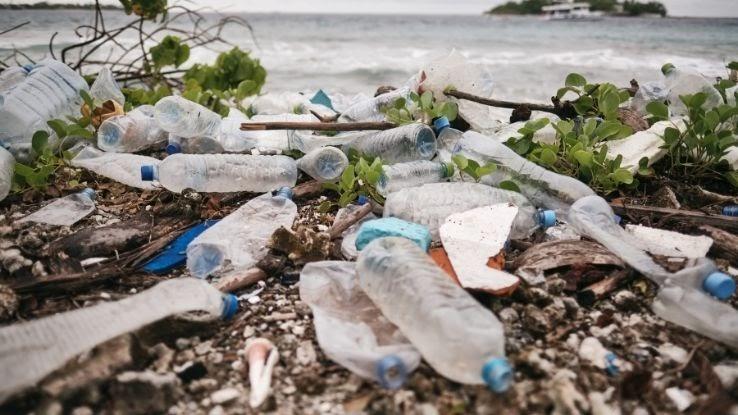
But the good news? It's an easily measurable metric, which means you can learn how to lessen your footprint through easy lifestyle changes. Try investing in energy-efficient appliances, eating locally sourced food, walking or riding a bike, conserving water, and shutting off lights when you aren't using them. Sure, these are small actions — especially when compared to the immense carbon footprints of big-name corporations — but these changes can add up.
5. Avoid Products That Harm the Ocean
We've already discussed plastic, but did you know that certain everyday personal care products can also harm the ocean? They contain pollutants that are harder to break down, so, instead of decomposing naturally, they build up in the ocean instead. The result? Marine life suffers.
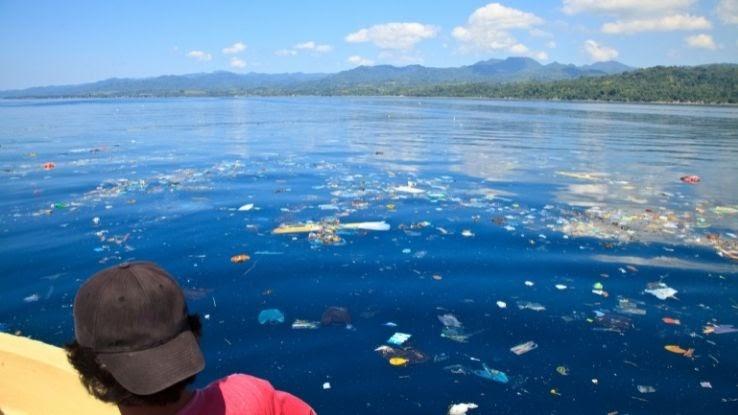
So, what are the products causing all of this harm? Unless you've recently taken stock of your toiletries, it's likely that a lot of your self-care products contain damaging ingredients. For example, you want to avoid the micro-beads found in facial scrubs, preservatives, and the ingredient Oxybenzone, which is found in shampoos, lipstick, mascara, and sunscreen, among other things.
Want to really reevaluate your products? A full list of marine pollutants can be found in the Code of Federal Regulations. If any of your personal care products contain any of the listed pollutants, consider switching to sustainable, zero-waste options instead.
6. Dispose of Your Trash Correctly by Recycling
As you likely know, we can manage food waste and plastic disposal with recycling. In the U.S., recycling first began in a large-scale way back in 1690 when the city of Philadelphia introduced the very first recycling linen. Back then, the recycling rate stood at less than 7%. Over the years, individuals and companies have started many recycling initiatives in order to protect the planet — and to solid results.
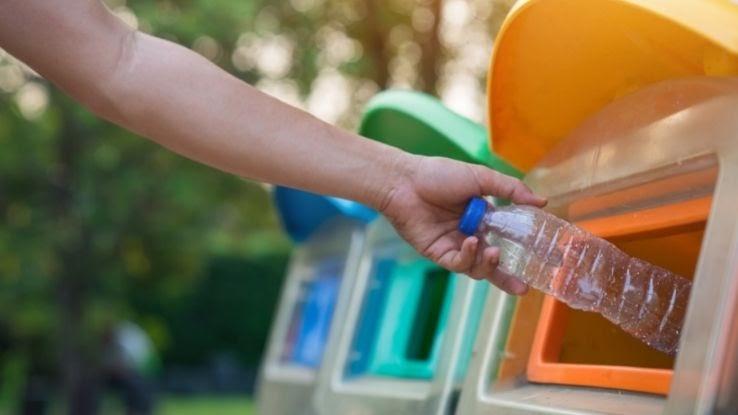
With more widespread awareness of the climate crisis, cities all over the world have introduced more thorough recycling regimens. Now, the recycling rate stands at 32%. Sure, that's a marked improvement, but we clearly have a long, long way to go. If you want to find out more about how your area tackles recycling and how you can contribute to the ocean's wellbeing, visit your local city or county website to find out more.
7. Educate Yourself, Volunteer, and Amplify Climate-Focused Organizations and Activists
As always, education is essential. After all, the best way to learn about how to save the ocean is to understand its current condition. There are plenty of books, podcasts, TED Talks, and studies out there that can help you gather a more well-rounded view of the ocean's health. Remember: stick to reputable, science-based sources, like National Geographic and the World Wildlife Fund (WWF).
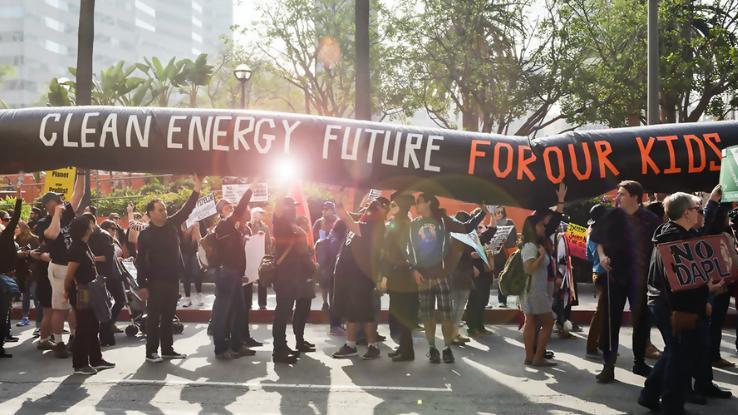
Learn more about federal policy by checking out the U.S. Environmental Protection Agency's (EPA) website. While well-known organizations such as Greenpeace can always use support, try diversifying the organizations and activists you're donating to and learning from. For example, support and donate to potentially lesser-known organizations aiming to not just fight climate change, but promote climate justice as well, such as Earthjustice. And prioritize learning from, supporting, and donating to Indigenous activists and Indigenous-led organizations that are leading the fight to preserve our water sources, forests, and land. Some great organizations you should amplify and support include:
- Sunrise Movement
- Indigenous Climate Action
- Indigenous Environmental Network
- Lakota People's Law Project
Of course, there are many, many other essential organizations, so, as always, be sure to seek out local groups in your community in addition to those with a more national reach.
Source: https://www.reference.com/science/how-to-save-the-ocean?utm_content=params%3Ao%3D740005%26ad%3DdirN%26qo%3DserpIndex&ueid=aac241ed-1173-4bdd-a5a2-a44d40cba547
0 Response to "To Be Continued Save the World"
Post a Comment